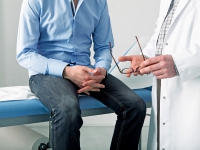New Year and Christmas holidays are a time of relaxation, adventure, carelessness, fiery parties, new acquaintances and romantic relationships with vivid emotions. However, the effects of holiday sex play can be long-lasting and even hazardous to health. Infections (STDs) often remain along with pleasant memories and «butterflies in the stomach». Read the rest of this article to find out how to identify and prevent them.
What are sexually transmitted diseases?
This is a group of sexually transmitted diseases:
- vaginal,
- anal,
- oral.
They are called:
- bacteria (gonorrhea, syphilis, chlamydia, mycoureaplasmosis);
- protozoa - trichomoniasis
- viruses (VIL, hepatitis, HPV - human papillomavirus, HSV - herpesvirus type ½);
- mushrooms (candidiasis),
- parasites (pubic lice, itch mite).
Signs of gonorrhea and other STDs
The symptoms of candidiasis and parasitic infections are rapid and relatively easy to treat. Syphilis, gonorrhea, trichomoniasis, or viruses can be asymptomatic for a long time. If left untreated, they can lead to:
- damage to bones and joints (gonorrhea, chlamydia)
- malfunctions in the circulatory system (tertiary syphilis)
- mental disorders (tertiary syphilis)
Infected people often do not suspect that they are carriers, therefore they are not treated and pose a potential danger to others.
An untreated viral infection leads to the development of such serious diseases as:
- HIV to AIDS
- hepatitis B and C to cirrhosis and primary liver cancer
- HPV to cervical cancer in women and penile cancer in men
- Trichomoniasis, gonorrhea, chlamydia to infertility, the treatment of which is very long and expensive and not always effective.
If a person has gonorrhea, or trichomoniasis, the symptoms are as follows:
- pain, itching, burning, cloudy discharge from the genitals with an unpleasant odor, purulent discharge from the urethra;
- discomfort during urination or a significant increase in its frequency;
- papillomas (or warts) with HPV
- Erosions or sores on the genitals in primary syphilis
5 rules of protection against sexually transmitted diseases during the New Year holidays
- The easiest and most effective way to protect yourself from STDs is to use an intact and correctly applied condom. It prevents infection during all types of sexual intercourse, both in heterosexual and homosexual couples.
- There are special mouth masks made of silicone or polyurethane that create a barrier between the mouth and the vagina or anus. They do not diminish sensation and should be applied especially during menstruation when blood contact may occur.
- Using lubricants (moisturizing gels, water or silicone based) with a condom. They reduce pain, the likelihood of abrasions, ulcers or skin lesions in the anus, that is, the possibility of transmitting STDs.
- Hygiene of intimate places before and after each sexual intercourse with the help of special liquids and napkins.
- Do not allow close contact of the genitals with erotic accessories (vibrator), wet towel, sponge or other objects that come into contact with physiological fluids of another, often infected person. Some STDs, such as HIV or hepatitis B and C, are spread through contact with contaminated blood.
But the most effective method of preventing the occurrence of sexually transmitted diseases is loyalty. ... Having a constant and faithful sexual partner, refusal of casual relationships significantly reduces the risk of contracting STDs.
When do you need an online venereologist consultation?
If HIV, hepatitis, and HPV are suspected, testing should be done 6–12 weeks after risky intercourse. This is the period of incubation of the virus, when the body begins to produce antibodies. Performing the test too early can lead to a negative result and lull your vigilance.
Fungal and parasitic infections can be identified by a swab and visual examination by a doctor.
In the event of the appearance of the above alarming symptoms, you first need to consult a urologist-venereologist online. ... He will prescribe tests for trichomoniasis, gonorrhea, syphilis and viral diseases, and prescribe special medications.
Early detection of an infection and its quick treatment give a better chance of recovery.
In the treatment are used:
- bacterial infections (syphilis or gonorrhea) - antibiotics, most often in the form of injections (Penicillinum Procainicum L TZF, Penicillinum Crystallisatum TZF); cephalosporins, tetracyclines, or aminoglycosides
- trichomoniasis - derivatives of azoles (metrohydazole, ornidazole, nimorazole, satronidazole, etc.)
- parasites (scabies, pubic lice) - local prescription chemotherapeutic agents;
- local yeast fungi (candidiasis) - pessaries, vaginal capsules, suppositories with clotrimazole, omokonazole, gynecological probiotics. In more severe cases, oral antifungal medications are necessary.
Viral infections are much more difficult to treat. HIV infection is incurable to this day, but there are drugs that delay the development of this disease.







